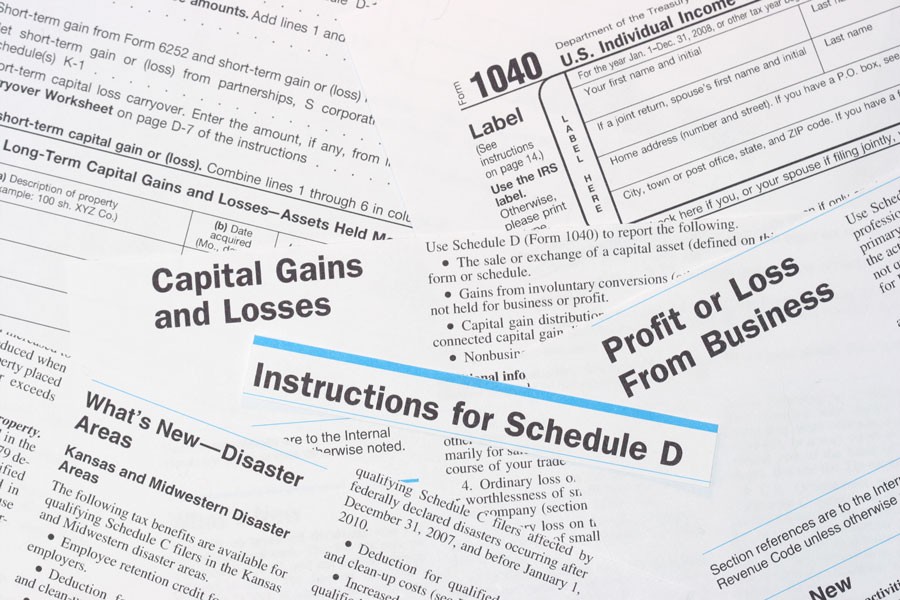Spending time working on your taxes can be a scrutinizing task, especially if you’re a business owner or sole proprietor. Regardless of how meticulously you file, there’s always a chance that you’ll be audited by the Internal Revenue Service. In fact, roughly 1 in every 220 individuals were audited in 2020. While this number is lower than previous years, your risk for an IRS audit is never zero. Your risk increases when you make over $200,000 and this risk continues to increase the more you earn. To take a proactive approach to taxes, here’s how to protect yourself against IRS audits.
IRS Audit Red Flags to Recognize
The first step in protecting yourself against IRS audits is understanding some of the common red flags. While there is no way to make sure you are 100% safe from an IRS audit, taking the proper precautions and keeping adequate records will help you avoid mistakes. Some common red flags that can raise attention include the following.
1. Overly Round Numbers
Rarely do purchases come out to be round, even numbers. To avoid calling attention to yourself, utilize exact numbers and avoid overly rounding on your deductions. With the use of electronic receipts, this is easy to do and a good way to reduce problems.
2. Inaccurate Social Security
Always double check that your social security number is correct. With increasing accounts of identity theft, any discrepancies will lead to an IRS audit. Inaccurate social security numbers are also often cause for tax return rejection, which can result in fines.
3. Unreported Taxable Income
Any income that you make needs to be reported, so send in any 1099s and W-2s that you receive. The IRS is likely already aware of your income and failing to report all of your income sources will attract negative attention. If you receive any copies of your 1099s or W-2s that have inaccurate information, make sure that the issuer corrects this so that you can send the IRS the correct documentation.
4. Improper Schedule C Claims
If you’re a small business, you should report your earnings using Schedule C. If you’re a trader, your expenses can be deducted, and you should report your earnings using a Schedule C. Investors, however, should not utilize Schedule C claims. Doing so will likely result in an IRS audit. If you’re unsure about the details regarding Schedule C claims, work with a CPA or tax professional to utilize the proper filing procedures.
5. Hidden Foreign Bank Accounts
Having a foreign bank account is not illegal, but it does need to be reported. If you try to hide foreign bank accounts and don’t report them, you’ll be faced with severe penalties and put yourself in the spotlight for IRS audits. This is especially true if the monetary value in these accounts exceeds $10,000. You can utilize the FinCEN Report 114 (FBAR) to report foreign bank accounts and may also need to file an IRS Form 8938.
6. Unusually Low Salaries
If you run a corporation and are reporting an alarmingly low salary, you increase the risk of an IRS audit. The principal owner’s salary is compared to the total revenue of the corporation and if a corporation is doing well, a good salary should reflect that. Don’t try to reduce your taxable income through offsetting profits—it will only lead to penalties and in some cases, legal action.
7. Unusually High Income
As mentioned, if you make over $200,000, you’re more likely to be audited by the IRS. The more you earn over $200,000, the greater the likelihood on an audit. If you make over $1 million, your risk of being audited by the IRS raises substantially.
8. Operating a Cash Business
There aren’t many things that run solely on cash in today’s society, so operating a fully cash business is a red flag for the IRS. If you run a business that gets a lot of cash, like bars or convenience stores, make sure that you’re reporting all your income. You’ll be under heightened scrutiny, so it’s in good practice to keep your documentation strong.
9. Substantial Changes in Income
Any substantial changes in income, either up or down, can increase your chance for an IRS audit. Make sure that you have the proper, legal documents in order that explain any changes.
10. Early IRA or 401(k) Payout
Making mistakes on tax returns in regard to retirement payouts from Roth IRA accounts or a 401(k) is quite common. These mistakes draw attention from the IRS and can lead to penalties. If you’re going to take money out before 60, make sure that you fully understand how to do so and pay the early withdrawal penalty. To learn more about how to best capitalize on your retirement accounts, work with an experienced financial advisor.
11. Extensive Deductions
One of the most common reasons for IRS tax audits is self-employment income that seems inaccurate due to extensive deductions. Deductions can be made for certain things, but if you spend money for personal reasons, do not expense it. If the IRS believes that your deductions are for personal spending, you will be more likely to undergo an audit. Always keep your business receipts for documentation.
12. Running a Business
Unfortunately, being self-employed makes you more likely to be audited. This is because business owners often write off more than an employee and income can be underreported to increase personal gain. Make sure that you stay compliant with all rules and regulations, avoid mixing business with personal, and report all your income.
Learn more: Can you have a Roth-IRA and a 401k?
To do everything you can to protect yourself against IRS audits, work with an experienced financial advisor. Financial advisors have detailed client information relating to income and expenses and can direct clients to investment opportunities which could help lower taxable income and manage capital gains. To schedule a consultation with an experienced financial advisor, contact William Bevins today at [email protected] or by calling (615) 469-7348.




